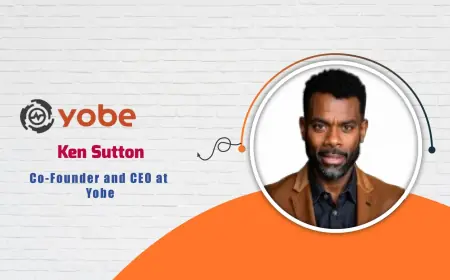How Institutions Are Fighting Back Against Class-Taking Services In Take My Class Online

In recent years, the rise of online education has brought with it a surge in class-taking services—third-party providers that offer to complete coursework, exams, and even entire degrees on behalf of students. While these services may seem like a convenient solution for overwhelmed students, they pose significant ethical, academic, and financial challenges to educational institutions. As the problem grows, universities and colleges are developing innovative strategies to combat these services and uphold the integrity of their academic programs.
The Rise of Class-Taking Services
The proliferation of online education has made learning more accessible than ever before. Students from all walks of life can now enroll in courses offered by prestigious universities, gaining knowledge and credentials that Take My Class Online were once out of reach. However, this accessibility has also led to unintended consequences. With the convenience of online learning comes the temptation for some students to outsource their academic responsibilities to third-party providers.
Class-taking services have emerged as a lucrative industry, with companies offering to complete assignments, take exams, and even participate in online discussions on behalf of students. These services often advertise themselves as legitimate academic support, but in reality, they undermine the fundamental principles of education. Students who use these services are essentially paying for a degree without putting in the effort to earn it, which devalues the credentials of the institution and the education of those who earn their degrees honestly.
The Ethical and Academic Implications
The use of class-taking services raises serious ethical concerns. Education is not just about acquiring knowledge; it is also about developing critical thinking skills, problem-solving abilities, and a sense of responsibility. When students outsource their work to third parties, they miss out on these essential aspects of their education. Furthermore, the use of these services constitutes academic dishonesty, which can have long-term consequences for both the student and the institution.
From an academic standpoint, the use of class-taking services undermines the integrity of the educational process. When students pass off someone else's work as their own, it becomes difficult for instructors to accurately assess their abilities and provide meaningful feedback. This can lead to a decline in the overall quality of education, as students are not being held accountable for their learning.
Moreover, the use of these services can have a ripple effect on the reputation of the institution. If it becomes known that a significant number of students are using third-party services to complete their coursework, it can damage the institution's credibility and the value of its degrees. Employers may begin to question the qualifications of graduates from that institution, leading to a decline in job opportunities for all students, not just those who cheated.
Institutional Strategies to Combat Class-Taking Services
Recognizing the threat posed by class-taking services, educational institutions are taking a multi-faceted approach to combat the problem. These strategies include the use of technology, policy changes, and education and awareness campaigns.
1. Leveraging Technology
One of the most effective ways institutions are fighting back against class-taking services is by leveraging technology. Advanced plagiarism detection software, such as Turnitin, has long been a staple in identifying copied work. However, as class-taking services become more sophisticated, institutions are turning to more advanced tools.
For instance, some universities are using proctoring software that monitors students during exams. These programs use artificial intelligence (AI) to detect suspicious behavior, such as a student looking away from the screen for extended periods or another person entering the room. Proctoring software can also verify a student's identity using biometric data, ensuring that the person taking the exam is the enrolled student.
In addition to proctoring software, institutions are increasingly using data analytics to identify patterns of academic dishonesty. By analyzing student behavior across multiple courses, institutions can detect anomalies that may indicate the use of a class-taking service. For example, if a student's writing style suddenly changes, or if they begin submitting work that is significantly better than their previous assignments, it may raise red flags.
2. Policy Revisions
To combat the use of class-taking services, many institutions are revising their academic policies to include clear definitions of academic dishonesty and the consequences for engaging in it. These policies often outline the specific actions that constitute cheating, including the use of third-party services, and the penalties for those caught cheating.
In addition to defining academic dishonesty, some institutions are implementing honor codes that require students to pledge to complete their work honestly. These honor codes are often accompanied by mandatory training on academic integrity, where students learn about the ethical implications of cheating and the potential consequences.
Furthermore, institutions are revisiting their disciplinary procedures to ensure that cases of academic dishonesty are handled swiftly and fairly. This may involve the creation of specialized committees or offices dedicated to investigating and addressing instances of cheating. By streamlining the disciplinary process, institutions can deter students from using class-taking services by making the consequences more immediate and severe.
3. Education and Awareness Campaigns
In addition to policy changes and technology, education and awareness campaigns play a crucial role in combating class-taking services. Many students may not fully understand the consequences of using these services, both in terms of their academic careers and their future professional lives. By educating students about the risks and ethical implications of academic dishonesty, institutions can reduce the demand for class-taking services.
These campaigns often include workshops, seminars, and online resources that explain what constitutes academic dishonesty and why it is harmful. Institutions may also use real-life examples of students who have been caught cheating to illustrate the potential consequences. By fostering a culture of academic integrity, institutions can encourage students to take pride in their work and resist the temptation to cheat.
4. Collaboration with Online Platforms
Another strategy institutions are employing is collaboration with online platforms where class-taking services are advertised. Some institutions have partnered with these platforms to identify and remove listings that promote academic dishonesty. For example, universities may work with platforms like Craigslist, Reddit, or Fiverr to flag and remove ads offering to complete coursework for students.
In addition to working with online platforms, institutions are also lobbying for stronger regulations and penalties for companies that offer class-taking services. By advocating for laws that criminalize the sale of academic work, institutions can reduce the availability of these services and protect the integrity of their academic programs.
The Role of Faculty and Administrators
Faculty and administrators play a critical role in the fight against class-taking services. Instructors are often the first line of defense in identifying academic dishonesty, and their vigilance can make a significant difference. By designing assessments that are difficult to outsource, such as personalized assignments or oral exams, faculty can reduce the likelihood that students will turn to class-taking services.
Additionally, instructors can foster a classroom environment that emphasizes the importance of academic integrity.
-
Time Management and Prioritization
Professionals who are interested in furthering their education should focus on effective time management and prioritization. By organizing their schedules and setting realistic goals, they can balance their professional responsibilities with their educational pursuits. Many educational institutions offer flexible learning options, such as online courses and part-time programs, designed to accommodate busy professionals. -
Institutional Support
Employers can play a crucial role in supporting employee professional development by offering resources and incentives. This can include providing financial support for courses, allowing flexible work hours, or offering on-the-job training and mentorship. Such support helps employees to pursue their development goals without compromising their professional integrity. -
Utilizing Professional Networks
Professionals can leverage their networks to find opportunities for growth and learning. Engaging with industry groups, attending conferences, and participating in workshops can provide valuable knowledge and skills without the need for shortcuts. Networking can also open doors to mentorship and collaborative projects that facilitate professional growth. -
Continuous Learning and Self-Development
Embracing a mindset of continuous learning and self-development can help professionals stay updated with industry trends and advancements. Self-directed learning through reading, online resources, and practical experiences can complement formal education and enhance professional capabilities.
Conclusion
The ethics of hiring a class taker for professional development are complex and multifaceted. While this practice may seem like a convenient solution for busy professionals, it raises significant ethical concerns related to integrity, fairness, and the impact on educational systems. Upholding ethical standards in professional development is essential to ensure that qualifications accurately reflect an individual's skills and knowledge. By adopting alternative approaches and embracing a commitment to genuine learning, professionals can achieve their development goals while maintaining their integrity and contributing positively to their fields.
What's Your Reaction?
 Like
0
Like
0
 Dislike
0
Dislike
0
 Love
0
Love
0
 Funny
0
Funny
0
 Angry
0
Angry
0
 Sad
0
Sad
0
 Wow
0
Wow
0












































